Throughout the many years that I’ve been writing this column, many questions have been asked about Roseland businesses, both in person and on social media such as Facebook or via email. Those questions have often centered on the businesses that were located on Michigan Avenue — fondly remembered as “The Ave.” The Kensington neighborhood, however, is often mentioned when there have been questions concerning specific businesses.
Going back to the beginning of the 20th century, Kensington Avenue could well have been known as “The Ave” for the Italian-American community. The Michigan Avenue shopping area was primarily where the longstanding Dutch and other ethnic groups did their shopping. Italian immigrants, not unlike other new arrivals to America, preferred to shop in business where they could be comfortable speaking their own language and deal with people who thought as they did. As one generation gave way to another and then another, the fabric of the Italian community unraveled. That’s why the kids of the ’50s and ’60s only saw the remnants of a bustling Kensington Avenue.
Folks refer to Kensington when talking about Italian breads like ciopa or ciopette. Of course, Gonnella is what immediately comes to mind, and we’ve still have a resident historian in 82-year-old Joe Marchioretto who retired from there and still lives in Kensington on 116th Street. Joe and I have become good friends and every so often we get together over some wine, cheese and Italian bread while enjoying — the highlight — his homemade wine as he shares his Gonnella stories.
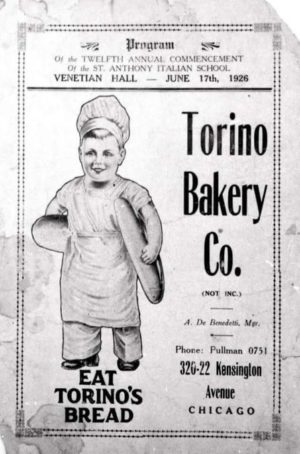 Winning the prize for longevity, Gonnella got its start in 1918 as Piemonte Bakery, located at 218 E. Kensington. The owner, Louie Dodaro, married a girl from Rockford and decided to move there and opened a Rockford Piemonte Bakery. When I was going there for Rockford ciope, before they closed the business, the owner Steve Dodaro, showed me a cardboard advertising placard he found. The advertisement had a scene of Venice’s Grand Canal with the Rockford Piemonte Bakery listed at the bottom along with their Chicago branch, located at 218 East Kensington. The Chicago location didn’t last very long, becaming Torino’s Bakery and struggling through the Depression before becoming a Gonnella Bakery.
Winning the prize for longevity, Gonnella got its start in 1918 as Piemonte Bakery, located at 218 E. Kensington. The owner, Louie Dodaro, married a girl from Rockford and decided to move there and opened a Rockford Piemonte Bakery. When I was going there for Rockford ciope, before they closed the business, the owner Steve Dodaro, showed me a cardboard advertising placard he found. The advertisement had a scene of Venice’s Grand Canal with the Rockford Piemonte Bakery listed at the bottom along with their Chicago branch, located at 218 East Kensington. The Chicago location didn’t last very long, becaming Torino’s Bakery and struggling through the Depression before becoming a Gonnella Bakery.
Many of the questions asked about the Kensington neighborhood come from former residents of the area or former Saint Anthony parishioners. Their questions primarily concern the ’60s and ’70s as the neighborhood changed. The businesses that people mention most often are the Verdi Show, Penguin Grill & Snack Shop, Gonnella, Spigolon’s, the Midwest Grocery Store, Piolatto’s Grocery, Pat & Matt’s, and Joe’s Barber Shop. As I said, the memories now are mostly from the 1960s or so, but there were many businesses that thrived during the early 1900s.
The Verdi Show probably wins another prize for longevity, getting its start in 1920s. The Verdi kept pace with the times, switching from silent movies to “talkies.” According to social media posts, in its later years the theater fell on hard times as more modern theaters opened in Roseland. The Verdi became known for the rats that ran across your feet as you watched a movie before it was closed and torn down. But you can bet it was a home away from home to many of the Kensington residents in its heyday before there was a television in every living room.
Kensington was a beehive of Italian-American activity during the ’20s, ’30s, and ’40s. and the fact that the neighborhood was home to a number of Italian clubs also made it very popular. I recall as a child in the early ’50s accompanying my dad as he visited with his friends at the South End Club. I would sit on a chair at the bar and have my 10-cent coke and a bag of Seyfert’s chips. After a while I would start to get sleepy and get off my bar stool, put two cane-back chairs together and go to sleep. I’m pretty sure my father carried me home because I’d wake up in my bed.
There was also the Roseland Operetta Club, which emerged out of a soccer team with a number of capable opera singers. The story goes that whenever they had a reason to celebrate, the members would end up singing arias they remembered from the old country. This led to them forming of the ROC (Roseland Operetta Club). They started out staging performances but became more family oriented with picnics and celebrations held on the club grounds on Kensington Avenue. There were also bocce ball courts for casual fun during warmer weather. Recently, someone who lived next door mentioned that the ROC summer celebrations included a contest where participants took turns trying to reach the top of a greased pole.
One of the stores that my mother frequented was Victoria’s Dress Shop, which was just west of the Operetta Club. An article from a 1950 South End Reporter stated that the dress shop had been robbed by a sophisticated gang that got away with $12,000 in dresses. What I recall is a story told to me by the late Ann Ronzani, that my mother had stopped by the shop while out with her three youngest — me, my brother Augie and my sister Rosie.
Mrs. Cornollo, the proprietress, insisted my mother stop and rest with a cup of coffee. My mother asked about the children and Mrs. Cornollo set up a table and chairs in front of the store so they could both relax and watch us as we played. That’s how friendly and casual the neighborhood was.
When it came to pastry shop bakeries, there was the Ness Bakery on Kensington. The actual building was torn down in the last five years. Elliot Ness’ father had three Roseland bakeries at one time. In addition to the Kensington bakery, there was a Ness Bakery at the south end of Roseland and at the north end also. The Kensington location, I’ve been told, was put to good use during the Prohibition era.
When you got down to Front Street, which runs along the former Illinois Central tracks, on the south side of Kensington was Parise’s restaurant, directly across from Parise’s Saloon. Parise was a commonly heard name in Pullman for many years as the founder was a “padrone.” This meant that he sometimes sponsored immigrants, gave them loans, had a travel service and offered advice for the new Italian immigrant. The Parise Restaurant was an outgrowth of the original saloon and provided a much-needed gathering place for special occasions, serving as a banquet hall for many Kensington events.
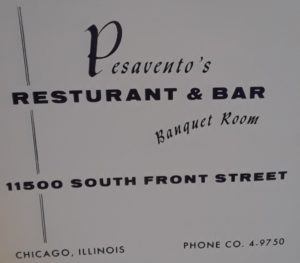 Following Front Street north to the former Illinois Central 115th train station, we come to Pesavento’s Restaurant at the southwest corner. The restaurant was opened in 1924 by Natale Pesavento and was eventually operated by his son Roy. Roy’s cousin, Joe Pesavento, was one of the bartenders for many years. Pesavento’s became locally known for a couple of special dishes like cook Lena Sartori’s minestrone. Families would send someone to have their soup pails filled for the family to enjoy.
Following Front Street north to the former Illinois Central 115th train station, we come to Pesavento’s Restaurant at the southwest corner. The restaurant was opened in 1924 by Natale Pesavento and was eventually operated by his son Roy. Roy’s cousin, Joe Pesavento, was one of the bartenders for many years. Pesavento’s became locally known for a couple of special dishes like cook Lena Sartori’s minestrone. Families would send someone to have their soup pails filled for the family to enjoy.
The glory days of Kensington and Roseland are long gone, but there is nothing that can diminish the brilliance of our memories. Old photos can’t replace our recollections, but they do go a long way in reviving them as we look back on our cherished younger days.
Contact me at 11403 S. St. Lawrence Ave., Chicago, Ill. 60628; 773-701-6756; or cjfranoi@yahoo.com; or visit Roseland Roundtable on Facebook
 Fra Noi Embrace Your Inner Italian
Fra Noi Embrace Your Inner Italian


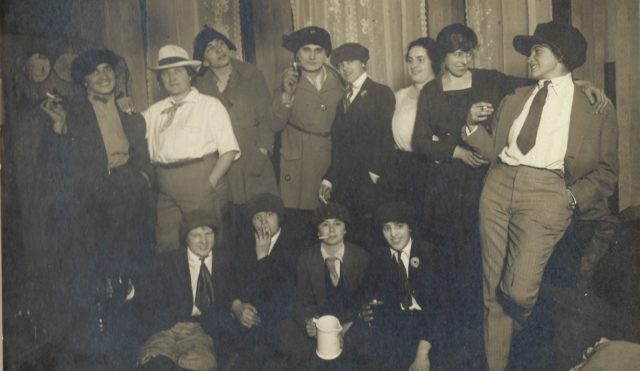
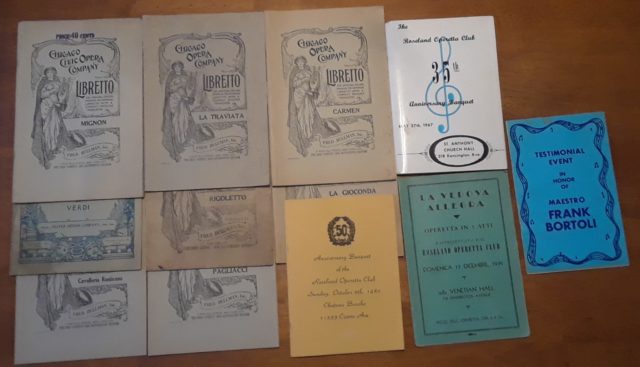
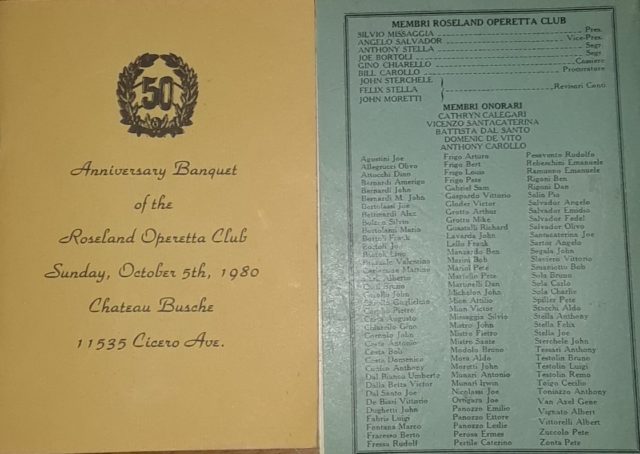
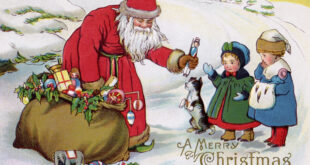
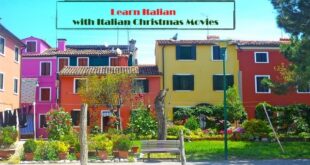

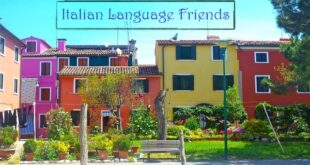
Just came across this Roseland article. What a refreshing piece! Except for my two grandfathers who were born in Italy, the rest of my family was born and raised in the Roseland area. My mom was raised on 116th and for the first 22 years of my life, that was my home too. In fact, don’t know if anyone remembers a little neighborhood grocery store on the corner of 116th and Indiana called “Rudy’s Meat Market”. The business belonged to my parents, Rudy and Marie Allegrucci, from 1955-1965. For the first 5 years, the store was open 7 days a week until my dad decided the grocery business wasn’t for him. Then my mom, with the hired help of Kay Carta, kept the business going for 5 more years but only open 6 days per week. Mom was a little firecracker, standing at only 5′, she butchered meat, picked-up the stock from the warehouse, every morning picked-up bakery goods on Halsted Ave., did the bookkeeping and on Friday nights, closed the store at 6:00 p.m. and made over 100 lbs. of sweet and hot sausage for Saturday morning. And it always sold out. They have passed on now, including Kay Carta and my sister, Renee Allegrucci, but what great memories!
My Grandparents were Bert and Nellie Fraresso. She was a seamstress for the Pullman Co. and he worked for International Harvester, and he was involved in the Operetta Club. Looking for anyone who might have some memories or connections. 1930s.
Pesavento’s … one of the greatest restaurants ever! Added bonus: Mary Pesavento (their daughter) was a classmate of mine (Fenger Class of 1968) and I had a HUGE crush on her! Mary was a classic Northern Italian beauty, with fair complexion, big blue eyes, and long silky black hair done in kind of a hippie style. She was so beautiful that I was afraid to ask her out or even talk to her. (Shades of Dante and Beatrice!).Then … Graduation Day. 1968! To my great surprise, Mary came up to me and asked to sign my yearbook. She signed: “Frank, please stay as NICE and HANDSOME as you are! Love, Mary.” Life is full of missed opportunities … “Those were the days, my friend, we thought they’d never end.”